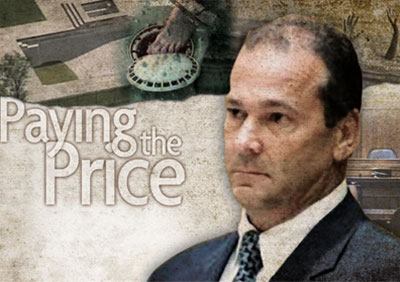MORE INFORMATION
- In Their Own Backyard
Many Connecticut pool and spa pros believe the legal outcome could affect current requirements for the industry statewide.
David Lionetti has made history.
The CEO of Stamford, Conn.-based Shoreline Pools was the first contractor ever to face criminal charges for a drowning that occurred in a pool his company built.
On April 13, Lionetti pleaded guilty to negligent homicide for the 2007 death of Zachary Archer Cohn, a 6-year-old whose arm was entrapped in a wall drain meant to feed a spillover spa.
“It’s a very fair and reasonable outcome,” says Lionetti’s attorney, Richard Meehan Jr. of Meehan Meehan and Gavin in Bridgeport, Conn. “It was a great relief for David Lionetti. Throughout all this, he’s been haunted by the fact that something that he and his family have done for 40 years, which is try to bring fun to people, ultimately had a part to play in the death of a little guy.”
At first it seemed like that “fair and reasonable outcome” would be much more severe. A year after the drowning, Greenwich police charged Lionetti with second-degree manslaughter — a felony — saying that he recklessly caused Zachary’s death. The builder faced a maximum penalty of 10 years in prison. But in the end, a carefully crafted agreement allowed him to plead guilty to negligent homicide, a misdemeanor, while his company accepted the second-degree manslaughter charge.
The industry has taken notice. Not only was a builder held criminally liable, but the CEO — someone who presumably never touched the pool — was arrested. And the unusual plea led to equally unusual penalties. Here, we explore the history of the case, its unique outcome and the industry’s reaction.
A tragedy in Greenwich
Pool and spa professionals have been carefully watching this case ever since the entrapment occurred.
Shoreline was hired in 2005 to build a pool for the new home that was eventually purchased by the Cohns. The vessel contained four drains — two in the pool and two in an accompanying spa.
However, each outlet was connected to a different pump, thus creating four separate single-drains. Moreover, the project was not equipped with safety vacuum release systems. Both deficiencies violated a state code, which had passed the year before, that required dual drains and SVRS’s on all new construction.
In 2006, the pool passed inspection with the town of Greenwich in spite of the obvious infractions.
The drain that entrapped Zachary fed into a pump that controlled the spa’s spillover waterfeature. It sat on the pool wall about three feet below the surface of the water.
According to court documents, a Shoreline service technician had noted a loose drain cover before the entrapment, but the company never fixed it, nor warned the Cohns to stay out of the pool.
In July 2007, Zachary’s arm became stuck in the drain, and even though two adults tried to free him, he was not extricated until his mother shut off power to the entire house. He died shortly afterward. In addition to receiving industry-wide attention, the incident was covered extensively by the mainstream press.
Unusual deal
Though Lionetti avoided a felony conviction, his company did not. As part of the plea bargain, Shoreline Pools, as an entity, accepted the second-degree manslaughter charge originally aimed at its CEO.
Lionetti was dealt a suspended one-year sentence, along with three years’ probation. In that time, he must complete 500 hours of community service. Currently he is set to perform janitorial duties at a local Boys & Girls Club, according to local press accounts.
For its part, Shoreline Pools faces the same probationary period as Lionetti. In addition, company officials must identify 100 installations in Connecticut that do not meet safety codes and update them free of charge. These retrofits must be completed at a rate of at least 10 pools per year for the next 10 years. The company further agreed to give $150,000 to the ZAC Foundation, a safety-awareness organization started by the Cohns.
Shoreline also must supply the ZAC Foundation with the addresses of every pool built in Connecticut since the SVRS and dual-drain mandate began, and pay to send a safety brochure to those homeowners. In addition, the company will sponsor safety booths at the International Pool|Spa|Patio Expo and the Atlantic City Pool & Spa Show for the next three years.
Since the incident, Shoreline Pools has instituted changes to prevent another entrapment, Meehan says. In order to comply with the state’s building code, the company has retrofitted every pool it’s constructed since Sept. 1, 2004, free of charge. Owners of Shoreline installations that were built before the code change were given the option of having their pools retrofitted for cost, the attorney adds.
The firm made in-house changes as well, including a training program for staff members instructing them on how to properly handle safety issues.
“All Shoreline employees have been very strictly trained in recognizing inherent dangers,” Meehan says.
In addition, a staff member has been appointed to stay abreast of building codes, since Lionetti claimed he was unaware of the SVRS requirement when the Cohns’ pool was built.
“In his case, it was a failure to perceive that there was an unjustifiable risk,” Meehan said. “If there’s a change in the law, irrespective of how difficult it is to learn, all citizens are nonetheless charged with [knowing] what the law is.”
But the new face of Shoreline is philosophical as well as procedural. The company now endorses SVRS’s and supports legislation to require them in new pools nationwide, Lionetti stated in a press release. The comment may have referred to efforts by the Cohns to persuade the Consumer Product Safety Commission to mandate SVRS’s on all pools, Meehan explains. He would not comment further.
Industry concerns
Reactions to the plea bargain were mixed across the industry.
Considering the code violations, many believe Shoreline fared as well as possible. In fact, some went so far as to say Lionetti walked away nearly unscathed. “Basically the pool builder and his company got virtually no punishment,” says attorney Mark Stapke, a partner at Michelman & Robinson in Los Angeles. “A year’s probation and then that little bit of community service is nothing when you’re talking about the death of a 6-year-old.”
Although many industry insiders considered Shoreline Pools at fault, some also are uneasy over the idea of a company CEO facing criminal charges for an entrapment. And the headline found on the ZAC Foundation’s press release encapsulates their concerns: “Groundbreaking case paves the way for families to seek justice in pool entrapment deaths.”
There is a long-standing legal tradition of corporate protection from individual liability. Known as the corporate veil, this shields company shareholders from being held personally liable for the firm’s debts or infractions. It usually holds water in a civil case, but, as the industry found out, it does not stand in criminal proceedings. Many worry that cases like this could become more commonplace.
What occurred in Connecticut won’t serve as legal precedent in another state, but it could pave the way for contractors across the nation to be charged criminally for errors that previously would have been considered negligence, according to Ray Arouesty, an attorney and president of Arrow Insurance Service in Simi Valley, Calif.
“This was a cutting-edge prosecution,” he says. “Given the success with which the prosecution brought this case, I think district attorneys in more states will be willing to [bring criminal charges], so I do think this case is going to have an effect. I do think this opens the door to more of these cases.”
What’s more, another contractor’s punishment could be even harsher if a similar situation arose.
“When you’re talking about the death of a 6-year-old, based on an admitted defect in the construction of a pool, I think you could well see another jurisdiction’s heavier consequences, including possibly some jail time,” Stapke says.
In the meantime, concerned observers take some comfort in the fact that Lionetti wasn’t charged with a felony.
“As a pool builder I am a bit relieved,” says Michael Giannamore, vice president of Aqua Pool & Patio Inc. in East Windsor, Conn. “It’s just scary, that something could occur in my family’s business that I don’t realize or miss for whatever reason, and I could be held criminally responsible.”
But, like many in the industry, he is of two minds.
“As a father, I shudder at the thought of what the family has gone through,” he says. “So I don’t think there’s any good outcome to this.”



